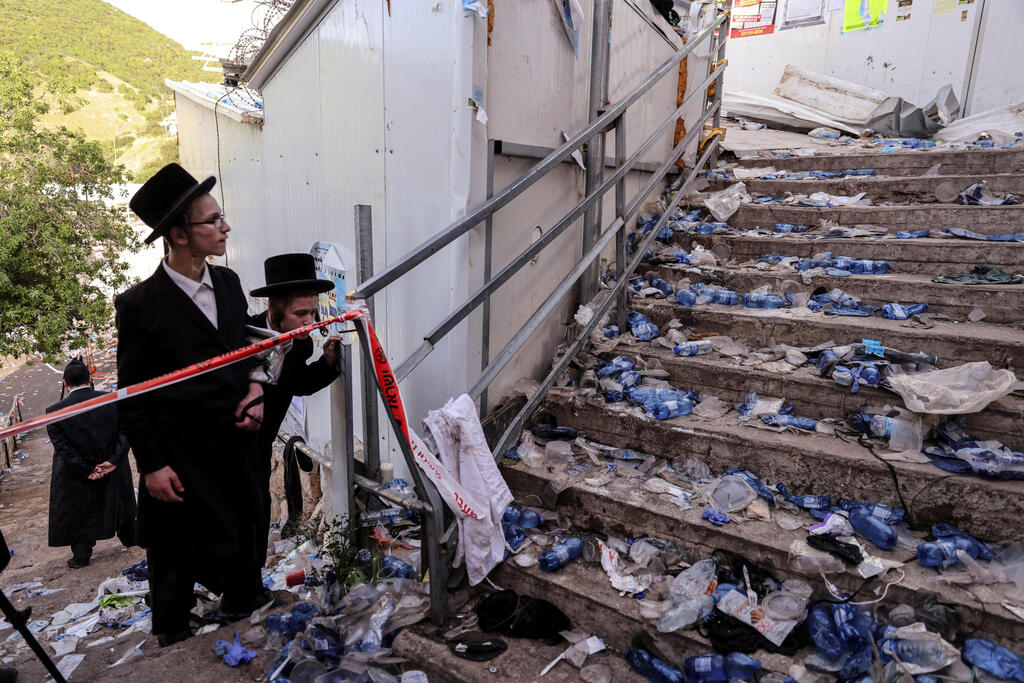Getting your Trinity Audio player ready...
Leaked protocols of an April meeting of Israel Police's top brass seen by Ynet reveal that senior officials were aware of the knotty circumstances that led to the deadly stampede on Mount Meron — considered the worst civilian disaster in Israel's history — but decided to greenlight the event anyway.
Tens of thousands of ultra-Orthodox Jews thronged the Galilee hillside tomb of second-century sage Rabbi Shimon Bar Yochai on April 30 for the annual Lag BaOmer festival that includes all-night prayer, mystical songs and dance. During the ceremony, part of the crowd surged into a narrow tunnel, with 45 men and boys trampled or asphyxiated to death and 102 others injured to varying degrees, among them U.S. and Canadian citizens.
6 View gallery
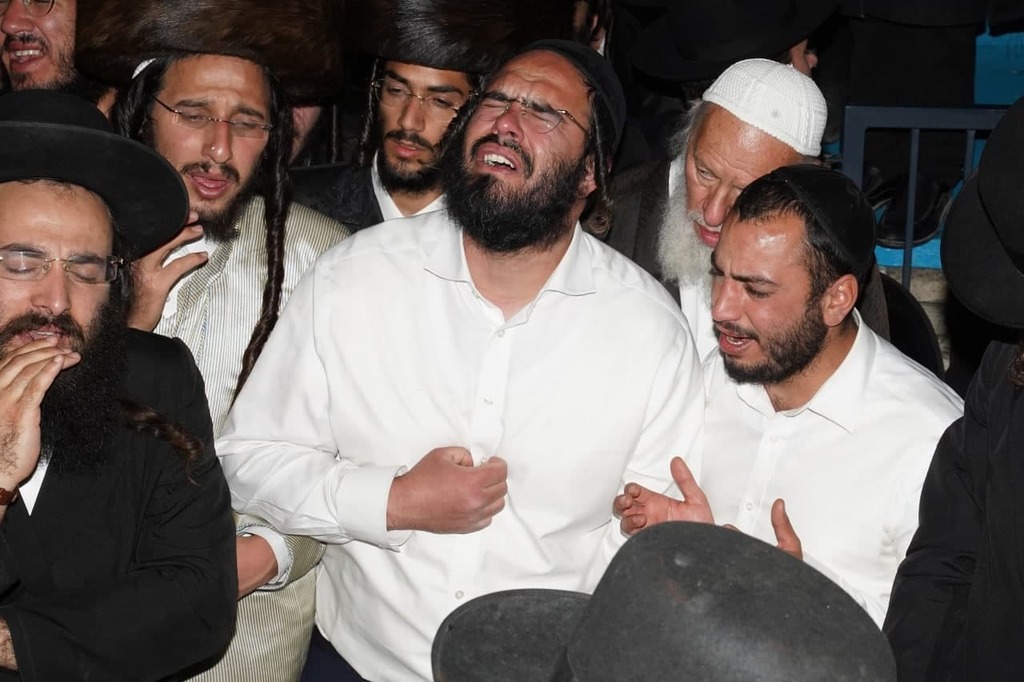

Mourners at the funeral of brothers Moshe (12) and David (18) Elhadad who perished in the Meron disaster
(Photo: Effie Shrir)
The April 19 meeting revolved around all the different and complex security issues pertaining to the event, including COVID-19 restrictions, crowd control and securing access routes to the tomb site.
Ynet has compiled some of the main points raised by police higher-ups in the damning document:
Who gave the orders?
To this day, Police Northern District Commander Maj.-Gen. Shimon Lavi, who oversaw the event on the ground, remains the only official to publicly take responsibility for the tragedy. However, the protocols show that Israel's top cop — Police Commissioner Yaakov Shabtai — was the one who pushed to authorize the mass event without any restrictions on the number of parishioners allowed on the mountain.
6 View gallery
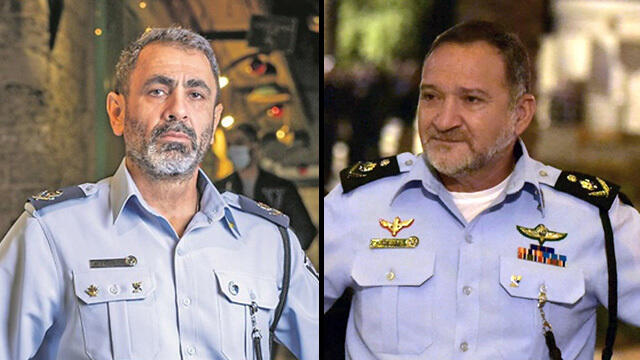

Police Northern District Commander Maj.-Gen. Shimon Lavi and Police Commissioner Yaakov Shabtai
(Photo: Israel Police, Tal Shahar)
"Israel Police's stance is that it will not be able to effectuate any enforcement activities on any [COVID-19] restrictions," Shabtai was quoted as saying in the discussion's summary. Nevertheless, he later stated that "citizens should be allowed free entry to Mount Meron..."
Securing the deadly tunnel
Shabtai and others at the meeting recognized the dangers entailed in allowing large masses of people to pass through the tomb site's narrow walkways at the same time.
"These issues require concentration of effort and attention in the preparation in light of the large number of participants in a small and limited space and the tangible danger to human life," he said.
He ordered to bolster security forces around access routes to direct the traffic and ensure that evacuation and escape routes remain open for any contingency.
Limiting the number of parishioners to 10,000
Northern District Commander Lavi was the only official present at the meeting who pushed to put a cap on the number of participants allowed on the mountain concurrently.
6 View gallery
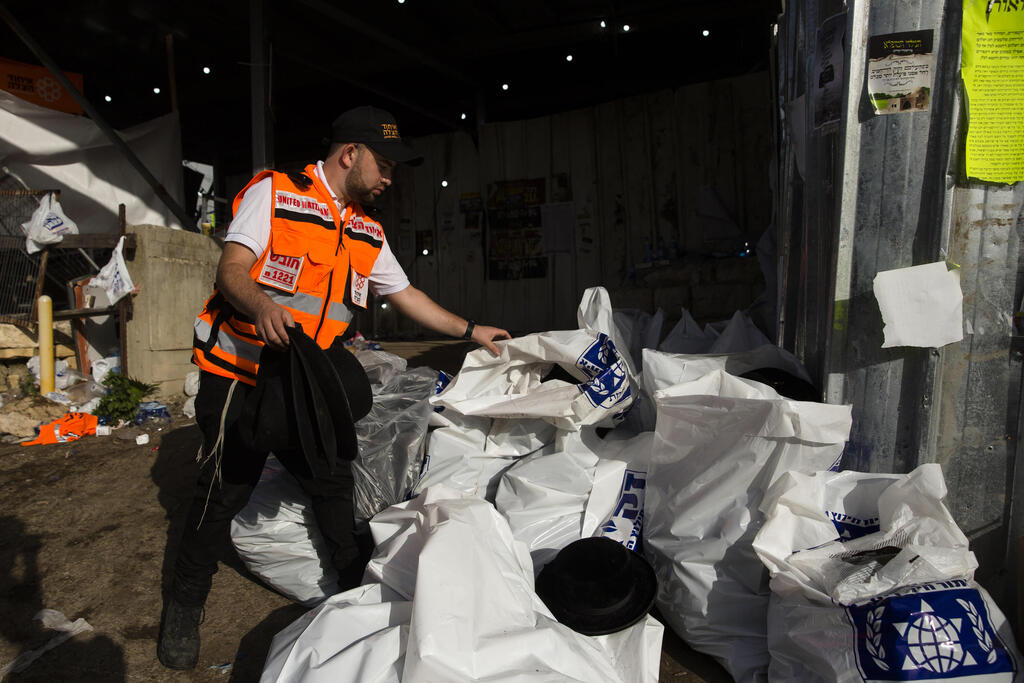

First responder sifts through personal belongings lost during Meron crush
(Photo: Gettyimages)
"I recommended an outline… [allowing] 10,000 people to enter the mountain at any given moment. The outline is challenging, but we must make a decision," Lavi said in the meeting.
Mission: impossible
Another official who sounded the alarm about a potential disaster was then-head of police Operations Department Maj.-Gen. Amnon Alkalay who pointed to the site's rickety infrastructure and called to prepare for a potential mass-casualty event.
Alkalay also admitted that the police would have been unable to enforce coronavirus restrictions at the packed festival if any had been imposed.
"Israel Police will not be able to meet the restrictions... Choosing between safety and health — safety comes first, and preventing overcrowding would serve both purposes," he said.
Then-Israel Police legal adviser Ayelet Elyashar and Human Resources Department chief Maj.-Gen. Boaz Goldberg also joined Alkalay's warnings, stating that enforcing such measures would not be feasible.
6 View gallery
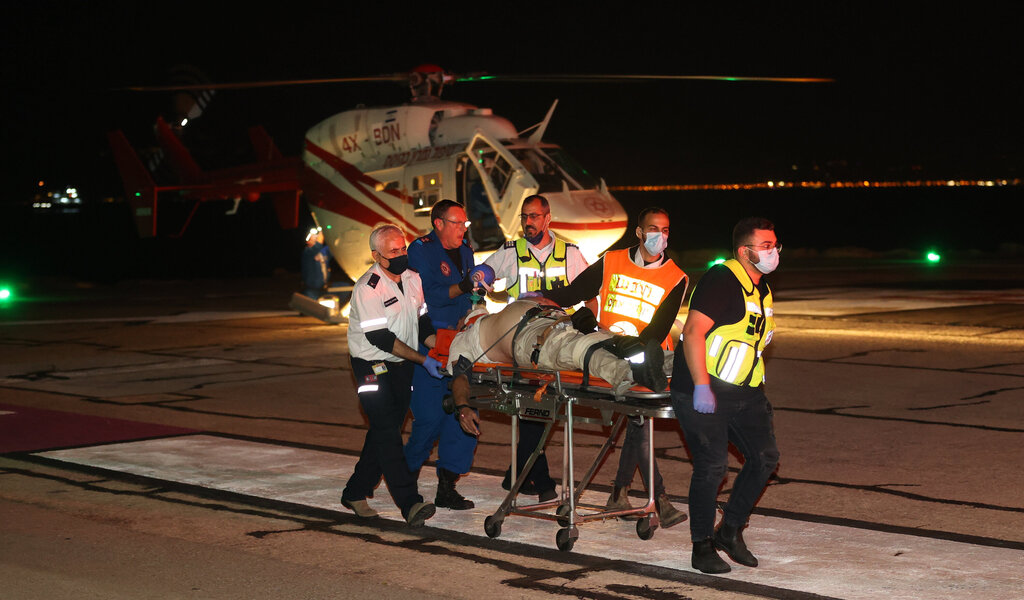

First responders rush Meron stampede casualties to Haifa's Health Care Campus
(Photo: Elad Gershgorn)
Israel launched a state inquiry into the stampede at the pilgrimage site to determine what led to the tragic event.
Some Israelis had questioned whether the former government and police were reluctant to further limit the crowd size because of pressure from influential ultra-Orthodox leaders.
Shabtai and other officials denied such allegations but the now leaked document may suggest otherwise.
Launched shortly after a new government was sworn in, the state commission of inquiry holds court powers in that it can summon witnesses and require them to produce documents or any other evidence it deems relevant. Its findings will be presented to the government though they are not legally binding.
6 View gallery
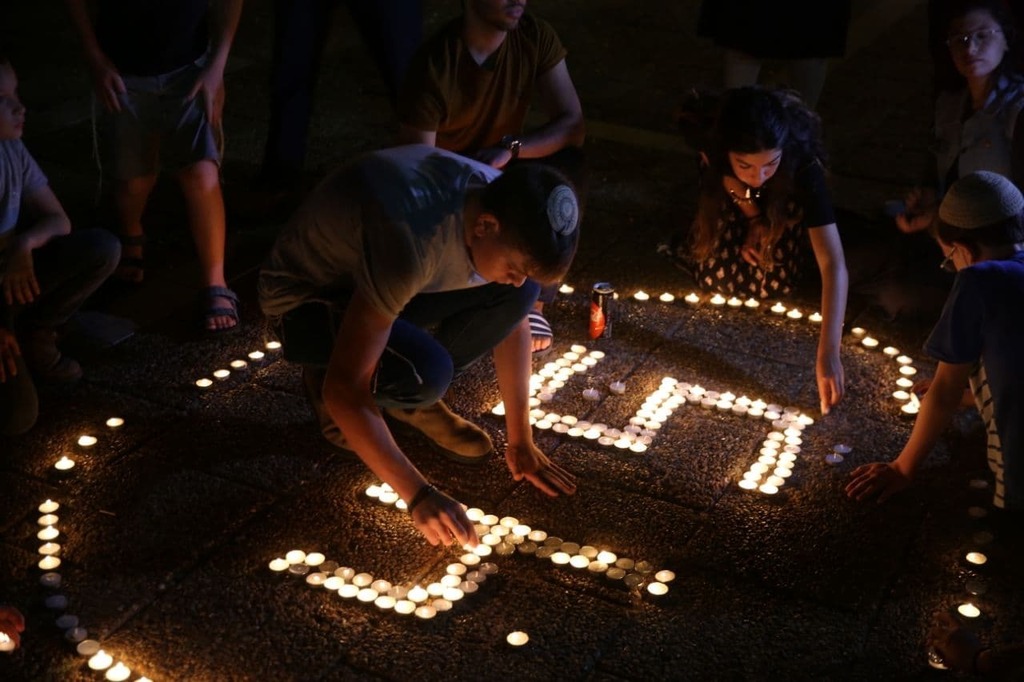

Citizens hold vigil, lighting candles in memory of 45 Meron crush victims at Tel Aviv's Rabin Square
(Photo: Moti Kimchi)
If the panel, headed by former Super Court chief Miriam Naor, were to find suspicions of criminal conduct it would have to report those to the Israeli attorney general.
Israel Police said in response: "The incident is under investigation by a state commission of inquiry and therefore, at this stage, we will not be able to respond on the matter."


